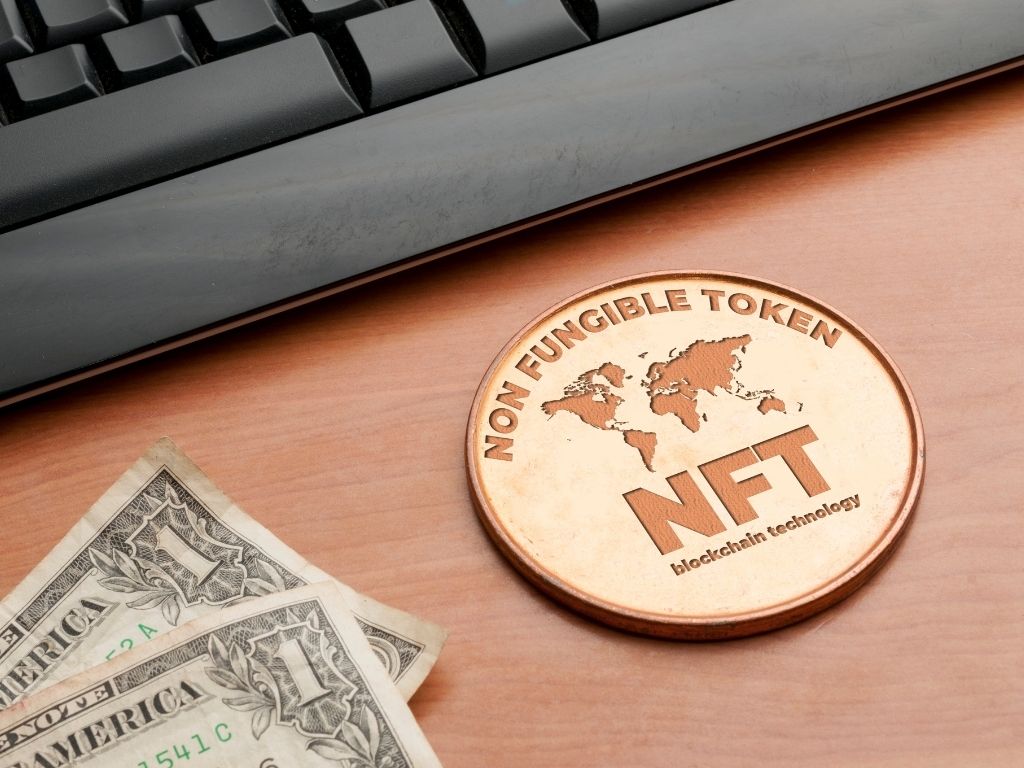NFTs And The Fashion Industry: Creating Unique Digital Identities For Consumers
The fashion industry is always looking for new ways to engage with consumers and provide them with unique experiences. One way in which fashion brands are doing this is through the use of NFTs, or non-fungible tokens. NFTs allow fashion brands to create unique digital identities for their consumers, which can be used to unlock exclusive content, products, and experiences. In this article, we will explore how NFTs are being used in the fashion industry to create unique digital identities for consumers.
What are NFTs?
NFTs are unique digital tokens that are created using blockchain technology. Unlike other cryptocurrencies, such as Bitcoin or Ethereum, NFTs cannot be exchanged for one another as they are non-fungible. Each NFT represents a unique asset, such as a piece of artwork or a collectible item, and is stored on a decentralized ledger. This provides a way for the ownership and authenticity of the asset to be verified and proven.
How are NFTs being used in the fashion industry?
Fashion brands are using NFTs to create unique digital identities for their consumers. These digital identities can be linked to physical products, such as clothing or accessories, or can exist as standalone assets. By creating a digital identity for consumers, fashion brands are able to offer exclusive content, products, and experiences that are not available to the general public.
For example, a fashion brand could create a limited edition NFT representing a specific clothing piece. This NFT could then be sold to a consumer, who would own the digital token and the physical item of clothing. By owning the NFT, the consumer would have access to exclusive content, such as behind-the-scenes footage of the creation of the garment or a virtual styling session with a fashion expert.
What are the benefits of using NFTs in the fashion industry?
There are several benefits of using NFTs in the fashion industry. Firstly, they provide a way for fashion brands to create unique digital identities for their consumers, which can be used to unlock exclusive content and experiences. This helps to create a sense of exclusivity and prestige around the brand.
Secondly, NFTs provide a way for fashion brands to prove the authenticity and ownership of their products. This can help to combat issues such as counterfeiting and intellectual property theft, which are common problems in the fashion industry.
Finally, NFTs provide a way for fashion brands to monetize their digital content and intellectual property. By creating limited edition NFTs, fashion brands can sell digital assets that are unique and valuable to consumers.
Also, read – Top 10 High-End Fashion Brands Entering The New Era With Metaverse
What are the challenges of using NFTs in the fashion industry?
There are several challenges associated with using NFTs in the fashion industry. Firstly, the technology is still relatively new, and many consumers may not yet understand the value and potential of NFTs.
- Consumer Understanding and Adoption: One of the biggest challenges facing the use of NFTs in the fashion industry is consumer understanding and adoption. Many consumers may not yet understand the value and potential of NFTs, which could limit their adoption and use.
- Environmental Concerns: The use of blockchain technology, which is the underlying technology of NFTs, requires a significant amount of energy and computing power. This raises concerns about the environmental impact of NFTs and the fashion industry’s role in contributing to carbon emissions.
- Intellectual Property Rights: NFTs provide a way for fashion brands to prove the authenticity and ownership of their products, but they also raise concerns about intellectual property rights. There may be legal challenges around the use of NFTs to represent copyrighted or trademarked material.
- Regulatory Concerns: The use of NFTs in the fashion industry may also raise regulatory concerns. For example, there may be concerns around money laundering, tax evasion, and other illegal activities.
- Integration with Existing Systems: Fashion brands may face challenges integrating NFTs with their existing systems and processes, particularly if they are using legacy systems or processes that do not support NFTs.
- Scalability: As the use of NFTs in the fashion industry grows, scalability may become a challenge. The current blockchain technology used for NFTs may not be able to support the volume of transactions required by the fashion industry.
- Technical Expertise: The creation and management of NFTs requires technical expertise, which may be a challenge for some fashion brands that do not have in-house technical capabilities.
- Cost: The use of NFTs may also be expensive, particularly if fashion brands need to invest in new systems or processes to support NFTs.
- Security: NFTs are stored on a blockchain, which is considered to be secure. However, there may be challenges around the security of the platforms or wallets used to manage NFTs.
- Cultural Shift: Finally, the use of NFTs in the fashion industry may require a cultural shift. Fashion brands may need to change the way they think about their products and how they engage with their customers to fully realize the potential of NFTs.
Gucci, the luxury brand created a virtual experience Gucci Garden in the metaverse. A bee-embroidered virtual Gucci Dionysus NFT sold for $4,115 while physical versions of the same bag sell for $3,400.
Either the world has gone crazy or I am becoming a dinosaur! pic.twitter.com/4WbSAO9qV7— Harsh Goenka (@hvgoenka) June 1, 2022
Conclusion
The use of NFTs in the fashion industry is an exciting development that has the potential to revolutionize the way we engage with fashion brands and their products. By creating unique digital identities for consumers, fashion brands can offer exclusive content, products, and experiences that are not available to the general public. This helps to create a sense of exclusivity and prestige around the brand, which can lead to increased customer loyalty and brand recognition.
𝑮𝒖𝒄𝒄𝒊’𝒔 𝒔𝒖𝒄𝒄𝒆𝒔𝒔𝒇𝒖𝒍 𝒊𝒏𝒕𝒆𝒈𝒓𝒂𝒕𝒊𝒐𝒏 of NFTs allows customers to own digital versions of their iconic products. Other brands can explore 𝐍𝐅𝐓𝐬 in the fashion industry. Have you heard about Gucci’s latest NFT collection? #NFTs #fashion #Gucci pic.twitter.com/iVnpA7qMSu
— hogi.io (@hogi_io) April 19, 2023
However, the use of NFTs in the fashion industry is not without its challenges. The technology is still relatively new, and many consumers may not yet understand the value and potential of NFTs. There are also concerns around the environmental impact of blockchain technology, as well as regulatory concerns around the use of NFTs for illegal activities.
Despite these challenges, the potential benefits of using NFTs in the fashion industry are significant. NFTs provide a way for fashion brands to prove the authenticity and ownership of their products, combat counterfeiting and intellectual property theft, and monetize their digital content and intellectual property. As the use of NFTs continues to grow, we can expect to see even more innovative ways in which fashion brands are using this technology to engage with their customers and create unique digital experiences.
In the coming years, it will be interesting to see how the use of NFTs in the fashion industry evolves and matures. As the technology becomes more mainstream and consumer awareness increases, we can expect to see even more innovative and exciting applications of NFTs in the world of fashion. Whether it’s through the creation of limited edition NFTs that represent physical products, or the development of entirely new digital products and experiences, the potential of NFTs in the fashion industry is limitless.
Stay informed with daily updates from Blockchain Magazine on Google News. Click here to follow us and mark as favorite: [Blockchain Magazine on Google News].
Get Blockchain Insights In Inbox
Stay ahead of the curve with expert analysis and market updates.
latest from tech
Disclaimer: Any post shared by a third-party agency are sponsored and Blockchain Magazine has no views on any such posts. The views and opinions expressed in this post are those of the clients and do not necessarily reflect the official policy or position of Blockchain Magazine. The information provided in this post is for informational purposes only and should not be considered as financial, investment, or professional advice. Blockchain Magazine does not endorse or promote any specific products, services, or companies mentioned in this posts. Readers are encouraged to conduct their own research and consult with a qualified professional before making any financial decisions. The featured image used is just a creative depiction of the title and it does not intend to hurt sentiments of any person or institution. If it hurts anyone sentiments, please do not hesitate to reach out to Blockchain Magazine.

 Bitcoin
Bitcoin  Ethereum
Ethereum  XRP
XRP  Tether
Tether  Solana
Solana  USDC
USDC  Dogecoin
Dogecoin  Cardano
Cardano  Lido Staked Ether
Lido Staked Ether  TRON
TRON  Wrapped Bitcoin
Wrapped Bitcoin  Chainlink
Chainlink  Wrapped stETH
Wrapped stETH  Avalanche
Avalanche  Sui
Sui  Stellar
Stellar  Hedera
Hedera  Toncoin
Toncoin  Shiba Inu
Shiba Inu  LEO Token
LEO Token  Hyperliquid
Hyperliquid  Litecoin
Litecoin  Bitget Token
Bitget Token  WETH
WETH  USDS
USDS  Polkadot
Polkadot  Bitcoin Cash
Bitcoin Cash  Ethena USDe
Ethena USDe  Wrapped eETH
Wrapped eETH  Uniswap
Uniswap  MANTRA
MANTRA  Ondo
Ondo  Pepe
Pepe  Aave
Aave  Monero
Monero  NEAR Protocol
NEAR Protocol  WhiteBIT Coin
WhiteBIT Coin  Mantle
Mantle  Official Trump
Official Trump  Aptos
Aptos  Dai
Dai  Internet Computer
Internet Computer  Ethereum Classic
Ethereum Classic  Bittensor
Bittensor  Cronos
Cronos  OKB
OKB  POL (ex-MATIC)
POL (ex-MATIC)  Gate
Gate 




